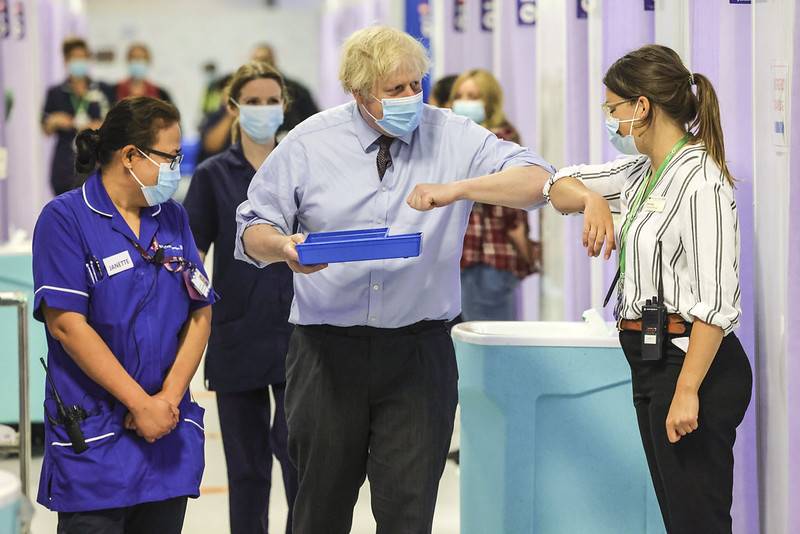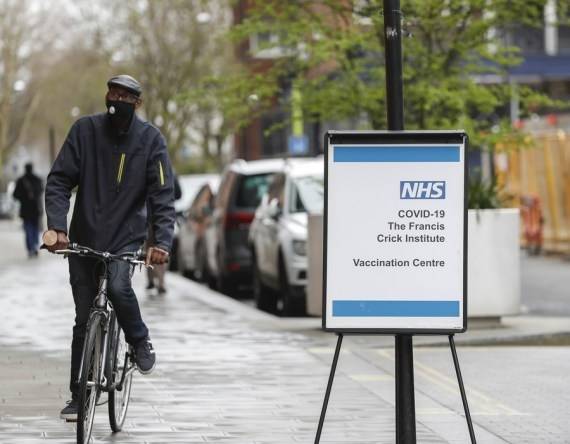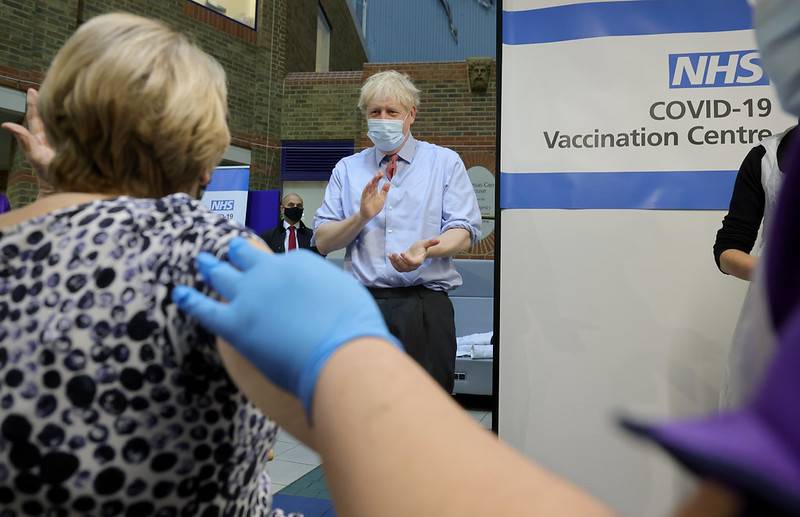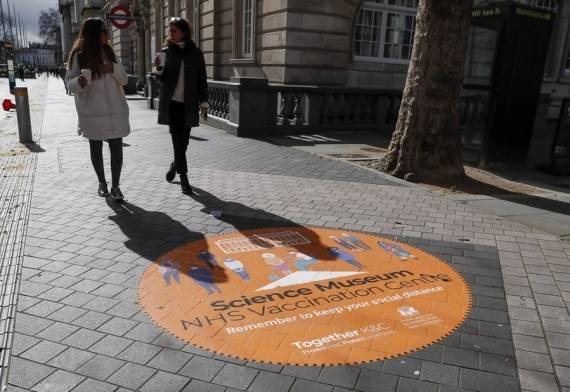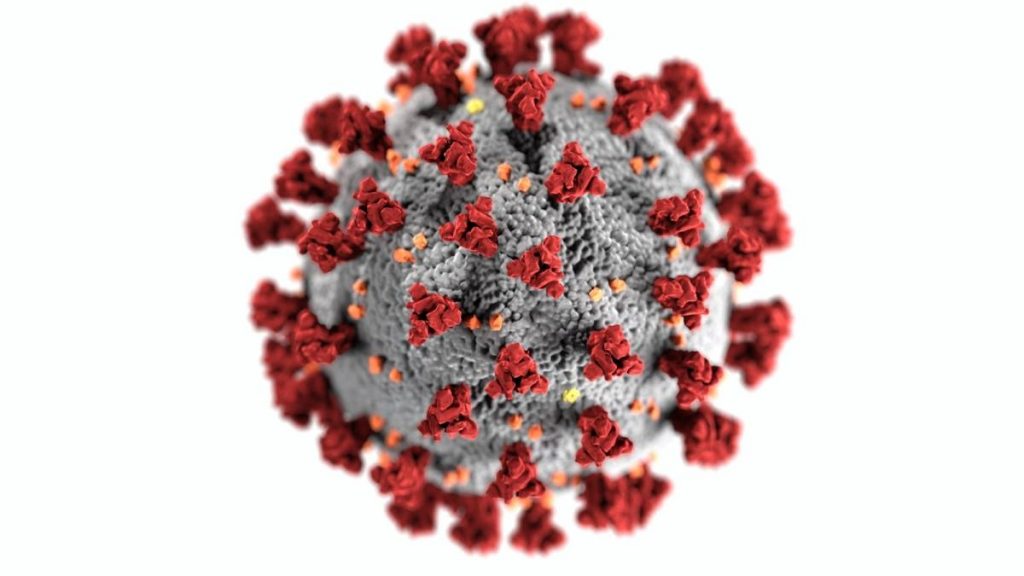The government is looking at scrapping the 10-day self-isolation requirement for people who have had two jabs upon return to England from the amber-list countries, reports Asian Lite Newsdesk
Prime Minister Boris Johnson on Monday said the plans to ease Covid-19 restrictions in England on 19 July are “looking good.”
He also said that Britain could be in a “rough winter” as pressure on the National Health Service (NHS) could be huge due to possible new disease on top of coronavirus.
“You can never exclude that there will be some new disease, some new horror that we simply haven’t budgeted for or accounted for,” said Johnson as he did not rule out the prospect of further lockdowns in the winter.
The prime minister said cases of the Delta variant first identified in India are still rising and the public have to remain cautious.
“We’ve got to be cautious but we’ll be following the data the whole time. But looking at where we are, the efficacy of the vaccine against all variants that we can currently see…I think it is looking good for July 19 to be that terminus point.”
UK has reported another 10,633 coronavirus cases in the latest 24-hour period, bringing the total number of coronavirus cases in the country to 4,640,507, according to official figures released on Monday.
The country also recorded another five coronavirus-related death. The total number of coronavirus-related deaths in Britain now stands at 127,981. These figures only include the deaths of people who died within 28 days of their first positive test, Xinhua news agency reported.
More than 43.1 million people have been given the first jab of the coronavirus vaccine while more than 31.4 million people have been fully vaccinated with a second dose, according to the latest official figures.
The latest data were revealed as British Health Secretary Matt Hancock said the British government is looking at scrapping the 10-day self-isolation requirement for people who have had two jabs upon return to England from the amber-list countries.
He told Sky News that the move was “something that we’re working on and I very much hope we’ll be able to make progress soon”.
Asked whether ministers were considering allowing double-vaccinated travellers to be exempt from quarantine on their return to the UK if they took daily tests, the prime minister told reporters as quoted by BBC: “When it comes to travel, we’ll certainly be looking at that.
“But I want to stress this is going to be, whatever happens, a difficult year for travel – there will be hassle, there will be delays, I’m afraid, because the priority has got to be to keep the country safe and to stop the virus coming back in.”
Currently, people arriving in the UK from a country on the government’s amber list must quarantine for 10 days – regardless of whether they have had a coronavirus jab.
However, in England an individual may be able to end their quarantine period early if they pay for an additional test under the test-to-release scheme.
Transport Secretary Grant Shapps said he was “cautiously hopeful” about being able to lift some restrictions on international travel as a result of the vaccine programme, the BBC reported.
He said the government had always committed to regularly review their international travel plan, with the next “checkpoint” taking place on 28 June.
He said that the checkpoints would look at whether the “science would support” relaxations including people who have received two vaccine doses no longer have to quarantine after returning from certain countries.
Johnson has announced a four-week delay to the final step of England’s roadmap out of Covid-19 restrictions until July 19, amid a surge in cases of the Delta variant.
Recent data published by Public Health England showed the AstraZeneca vaccine is 92 per cent effective against hospitalization from the Delta variant after two doses, and the Pfizer vaccine is 96 per cent effective against hospitalization after two doses.
Experts have warned that coronavirus may continue to evolve for years to come, and eventually it is likely current vaccines will fail to protect against transmission, infection, or even disease caused by newer variants.
ALSO READ CDC classifies delta variant as a concern
READ MORE-Under-18s could be Delta variant driver, warns virologist

